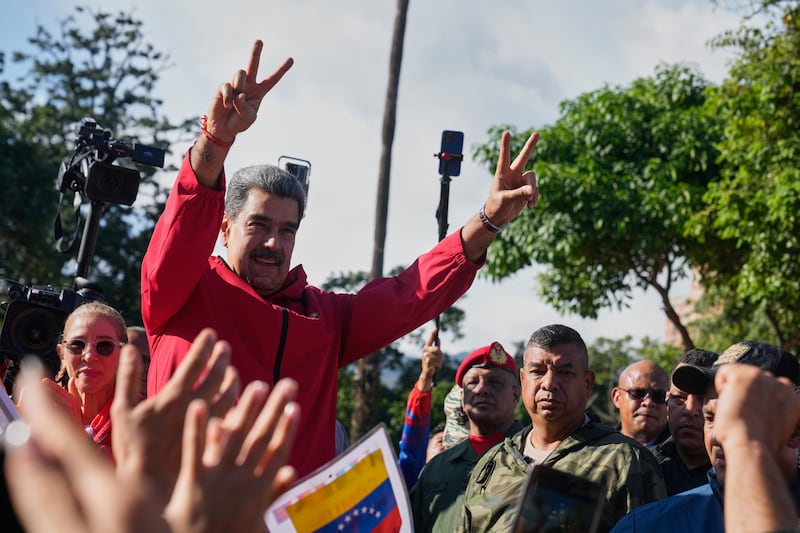- President Donald Trump said he may authorize U.S. land-based military strikes against Venezuelan drug traffickers, citing a rise in cartel activity.
- The U.S. has deployed more than 10,000 troops, multiple Navy ships and F-35 fighters around Venezuela, drawing U.N. condemnation for violating international law.
- Trump defended the shift from Coast Guard to missile strikes, claiming previous anti-drug efforts “never worked” and that sea routes are now nearly shut down.
President Donald Trump told reporters in the White House he may direct U.S. military to perform land-based strikes against drug traffickers in Venezuela, following a significant increase in military presence around the South American country.
The administration plans on briefing Congress on anti-drug cartel operations, though Trump said he does not need a declaration of war to carry out the strikes. Over the past month, U.S. military forces have arrested about 3,200 alleged drug cartel members.
“We’re going to go (to Congress). I don’t see any loss in going — no reason not to,” Trump said, per Reuters. He continued, “I don’t think we’re going to necessarily ask for a declaration of war. I think we’re just going to kill people that are bringing drugs into our country.”
Defense Secretary Pete Hegseth sat on Trump’s right as reporters asked questions.
“Now they (drugs) are coming in by land ... you know, the land is going to be next,” Trump said.
What has the U.S. deployed in and around Venezuela?
Since Sept. 2, the United States has carried out 10 strikes against suspected drug boats, with 43 fatalities, per The New York Times.
United States military presence has grown surrounding the country and around the Caribbean.
The U.S. has deployed three Aegis guided-missile destroyers, three amphibious assault ships, two Navy vessels and a Navy submarine, PBS reported.
ABC added, 10,000 military personnel are currently stationed in the Caribbean as part of the operations against Venezuelan drug cartels. They are split across eight Navy ships and 10 F-35 stealth fighters. U.S. reconnaissance aircraft, including Reaper unmanned drones, have also been reported in the area.
Naval forces have been coordinating with bases in Puerto Rico, including Punta Borinquen Radar Station and Muñiz Air National Guard Base.
Meanwhile, Venezuela has put its armed forces on alert.
In a statement on Tuesday, the United Nations condemned the strikes “as violations of international laws,” saying the United States is not granted the right of self-defense, since “these groups are not attacking” the country.
Trump says previous approach ‘never worked’
A reporter in the Oval Office asked Trump why he is shifting responsibility for drug interception from the Coast Guard to missile strikes, on Oct. 15.
Trump responded, “It never worked. It never worked when you did it in a very politically correct manner.”
“We’ve been trying to do that for years, and so much of the drugs — 25-30% — would come in through the seas. Right now we have none coming through the seas. … We’ve almost totally stopped it by sea; now we’ll stop it by land," he said.
Other South American countries aligning with Trump
After Rodrigo Paz won Bolivia’s presidency earlier this week, he appeared on Fox News, saying, “Bolivia wants change.”
Paz is the first centrist president of Bolivia in two decades, ending consecutive presidencies led by members of the Movement Toward Socialism party, The Associated Press reported.
“Bolivia wants to be a part of the world and for the world to come to Bolivia. And one of the most important factors is this new relationship with the United States and with President Trump’s government,” Paz said following his victory.
Bolivia’s shift toward Trump follows Argentina, El Salvador and Ecuador’s friendly relationships with the United State’s president in his second administration.
Secretary of State Marco Rubio, has consistently condemned Venezuelan President Nicolás Maduro’s reelection over the summer.
In a press release from late-July, Rubio said the United States does not recognize Maduro as the president, adding, “Those who steal elections and use force to grasp power undermine America’s national security interests.”


